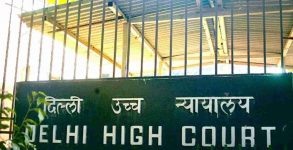The National Council of Educational Research and Training (NCERT) curriculum will be implemented in a phased manner in all recognised/state-aided madrasas of UP beginning with the next academic session in March, just as it has been in schools, and obstacles to the distribution of uniforms to madrasa students will soon be removed, according to officials.
While state-run school students receive Rs1,200 for uniforms under the Direct Benefit Transfer (DBT) programme, madrasa students will receive the same amount for uniforms once the government accepts the proposal submitted in this respect.
“From March to April, the NCERT curriculum would be implemented in madrasas,” stated Iftikhar Ahmed Javed, head of the UP State Madrasa Education Board. Despite the absence of a formal clothing code for madrasas, he stated that uniforms would be kurta-pyjamas for boys and salwar-kurta for ladies.
Wednesday’s significant meeting of the UP State Madrasa Education Board resulted in this decision.
In attendance at the meeting were board members Qamar Ali, Tanveer Rizvi, Dr. Imran Ahmed, Asad Hussain, Ashish Anand (finance and accounts officer, minority welfare directorate), and Jagmohan Singh (registrar, UP Madrasa Education Council, Lucknow).
There are currently approximately 25,000 madrasas in UP. The UP Board of Madrasa Education recognises about 16,513 schools. 558 of these are supported by the government, while the remainder are just linked with the madrasa education board. Over 19 lakh students are enrolled in recognised madrasas, while another 7 lakh pupils attend one of the state’s 8,500 unrecognised madrasas.
Javed stated, “The board members rejected the National Child Rights Protection Commission’s request to investigate madrasas that admit non-Muslim children. According to them, students of all faiths have the right to attend madrasas. As state madrasas undergo modernization, they teach every subject in addition to Islam.”
As the NCERT books were in short supply, he claimed, a lengthy discussion was also held on how to deliver textbooks (for classes 1 through 8) from the basic education department to madrasas receiving government money.
The members reviewed the problems encountered by the basic education department in the distribution of uniforms to pupils in classes 1 through 8 in madrasas receiving government funding. It was agreed to deposit uniform-purchasing funds directly into the accounts of madrasa students.
Members agreed to train madrasa instructors in order to improve their ability to deliver education. Now, madrasa instructors will be taught by professionals along the lines of the department of elementary and secondary education.
In connection with the amendment to the Uttar Pradesh Non-Government Arabic and Farsi Madrasa Recognition, Administration, and Service Regulation-2016, it was decided to send the revised proposal to the government, incorporating the suggestions received from the stakeholders, for promulgation of the revised regulation.
The chairman of the Islamic Centre of India, Maulana Khalid Rashid Farangi Mahali, stated, “The implementation of the NCERT curriculum is welcome, provided there is no interference with the Islamic curriculum. Regarding payment for uniforms directly into student bank accounts, I would want to state that it is acceptable unless the dress code is determined only by madrasas. However, things would be different if the state government unilaterally imposed a dress code.”
Maualana Abdul Azeez, vice-principal of the 125-year-old madrasa (Islamic seminary) Darul Uloom Nawwatul Ulama (Lucknow), stated, “We are not governed by the UP Madrasa Education Board, thus voicing our views is out of the question. However, we shall examine the judgements made today before responding to the uniform and NCERT curriculum issues.”
“We applaud the idea to give money to students for uniform costs. However, the dress code should reflect the ethos of madrasa education and not be Western. The NCERT curriculum must be implemented without compromising religious studies at UP madrasas, according to Maulana Yasoob Abbas, general secretary of the All-India Shia Personal Law Board.


















